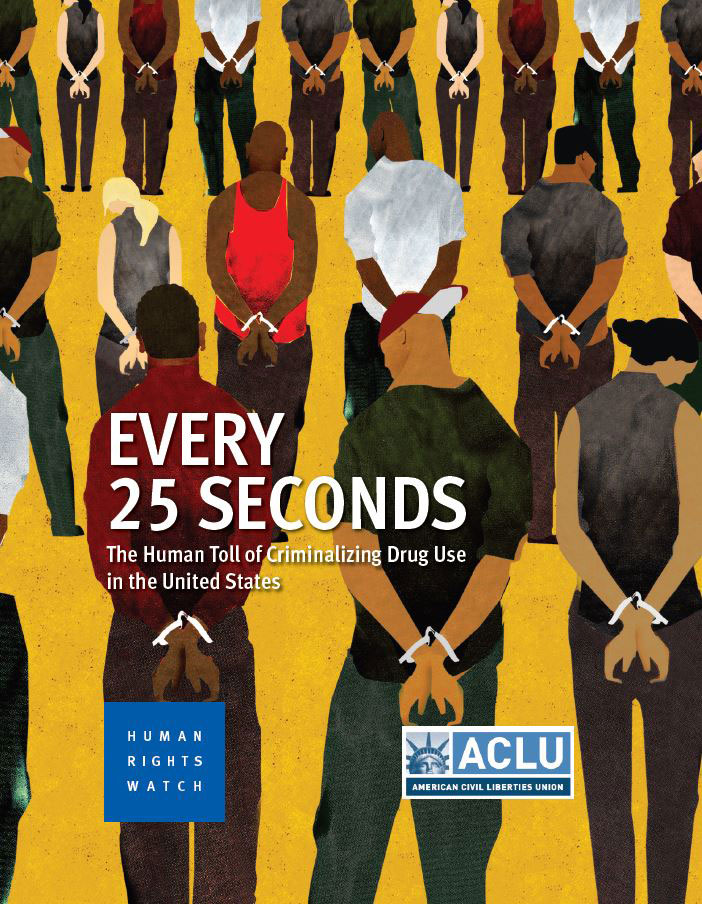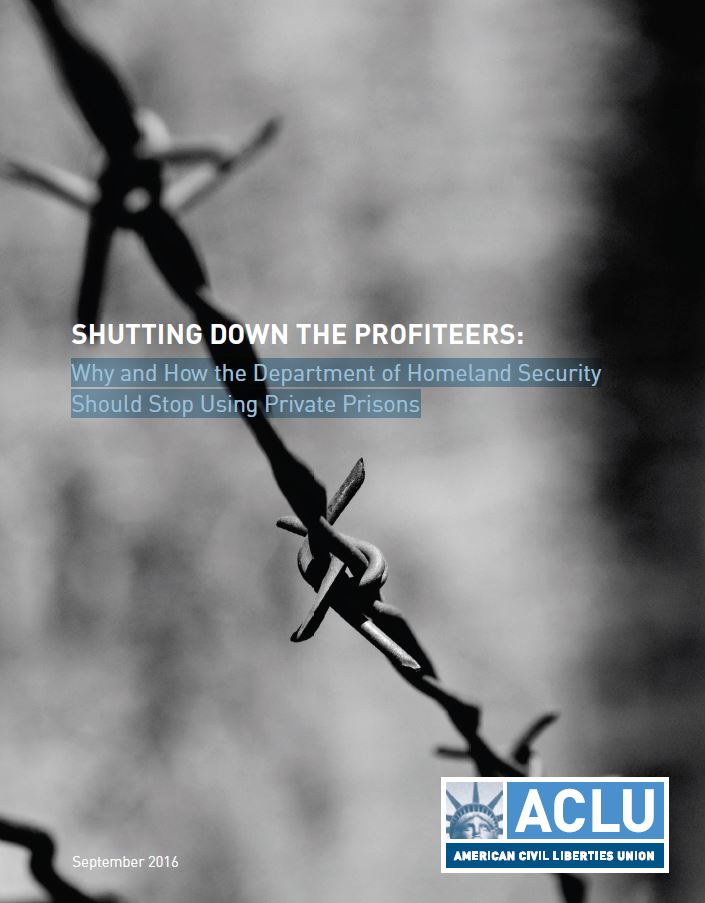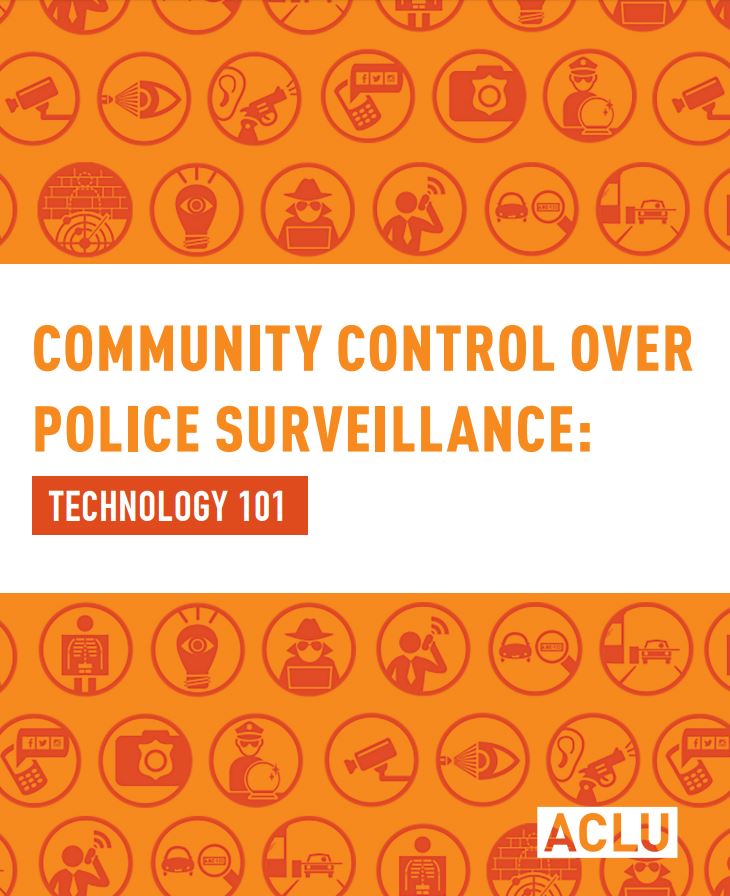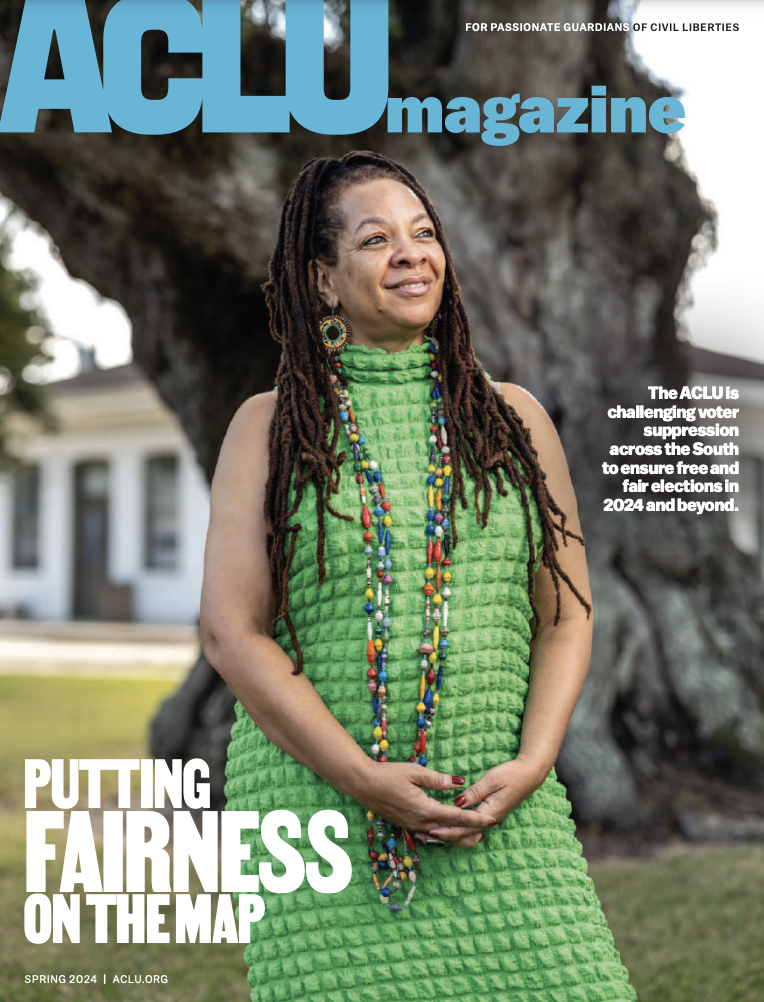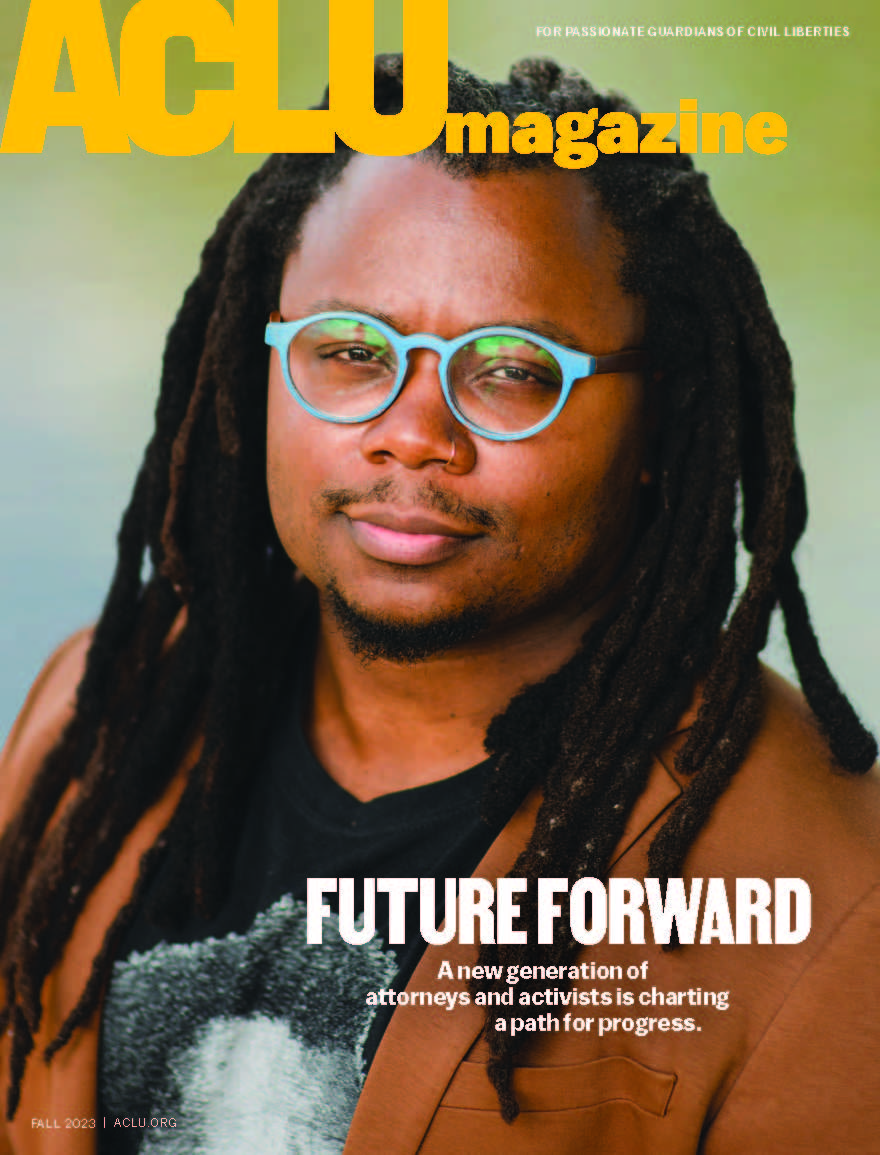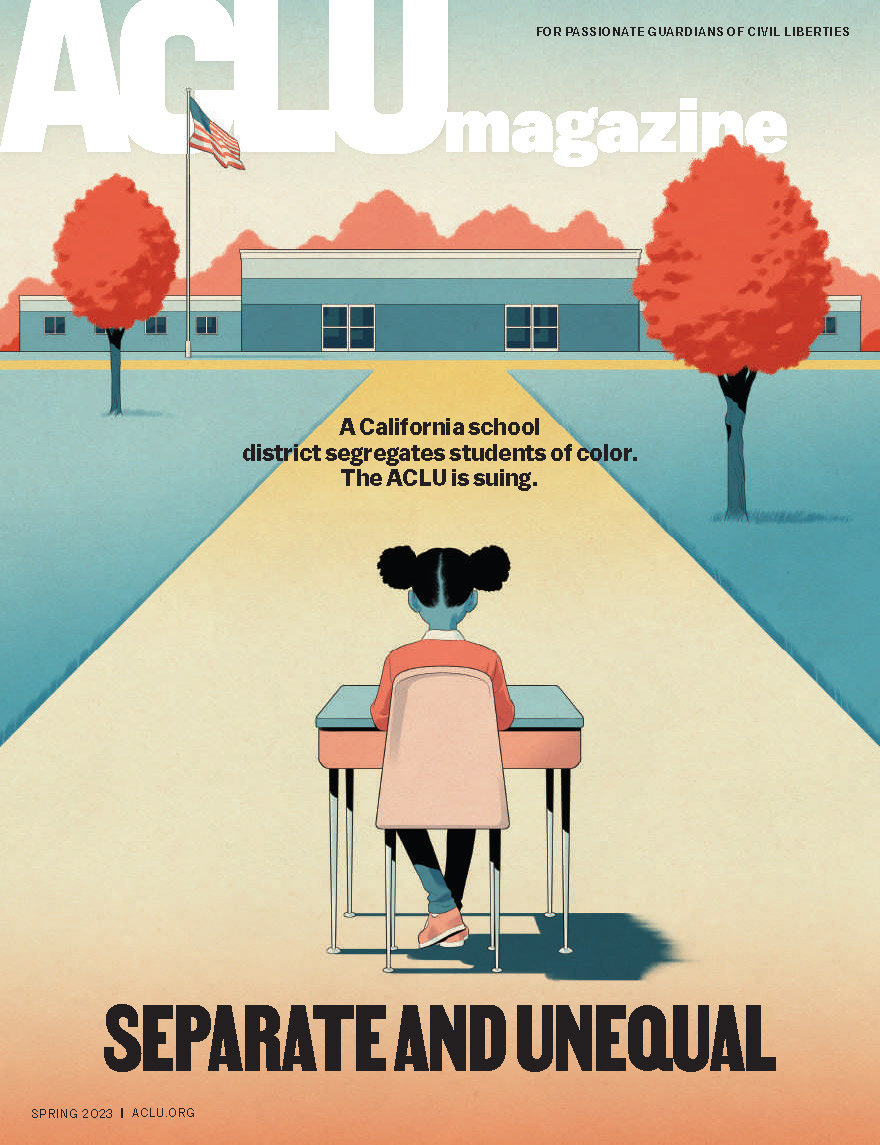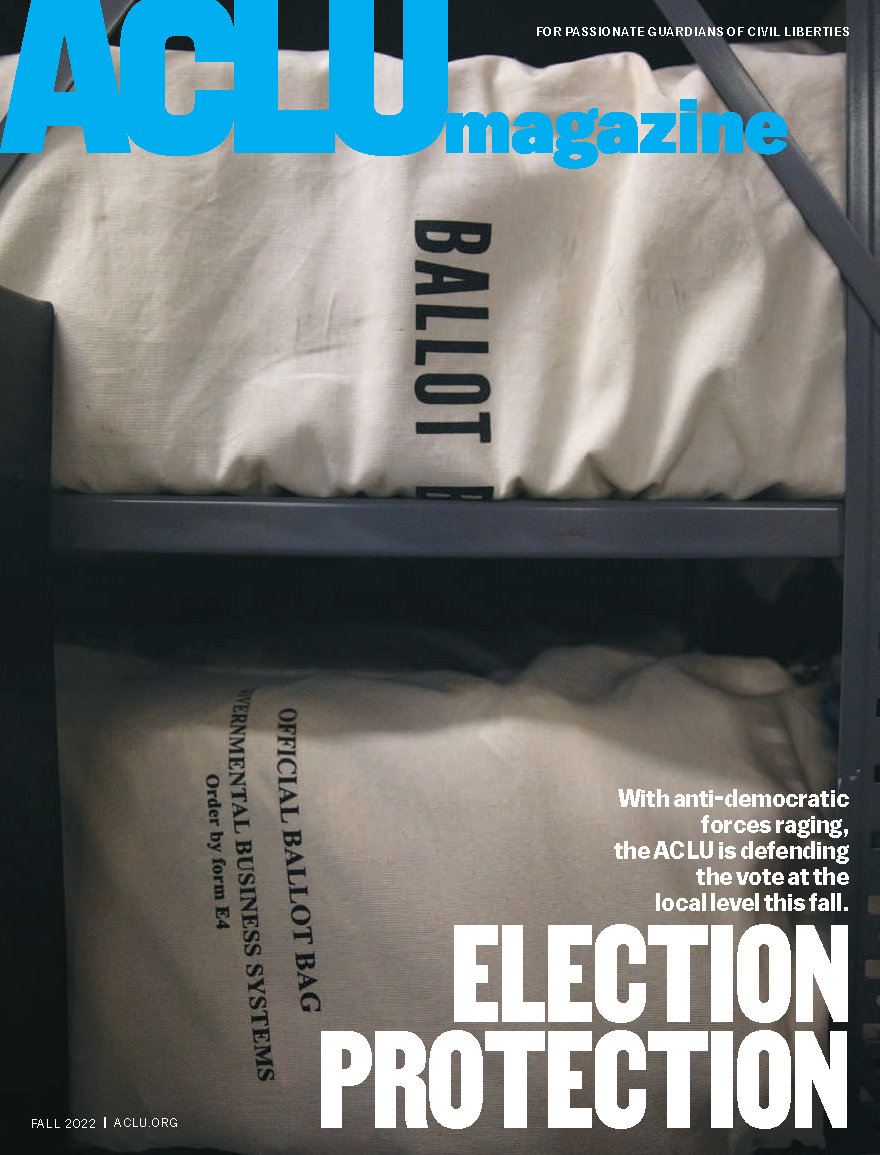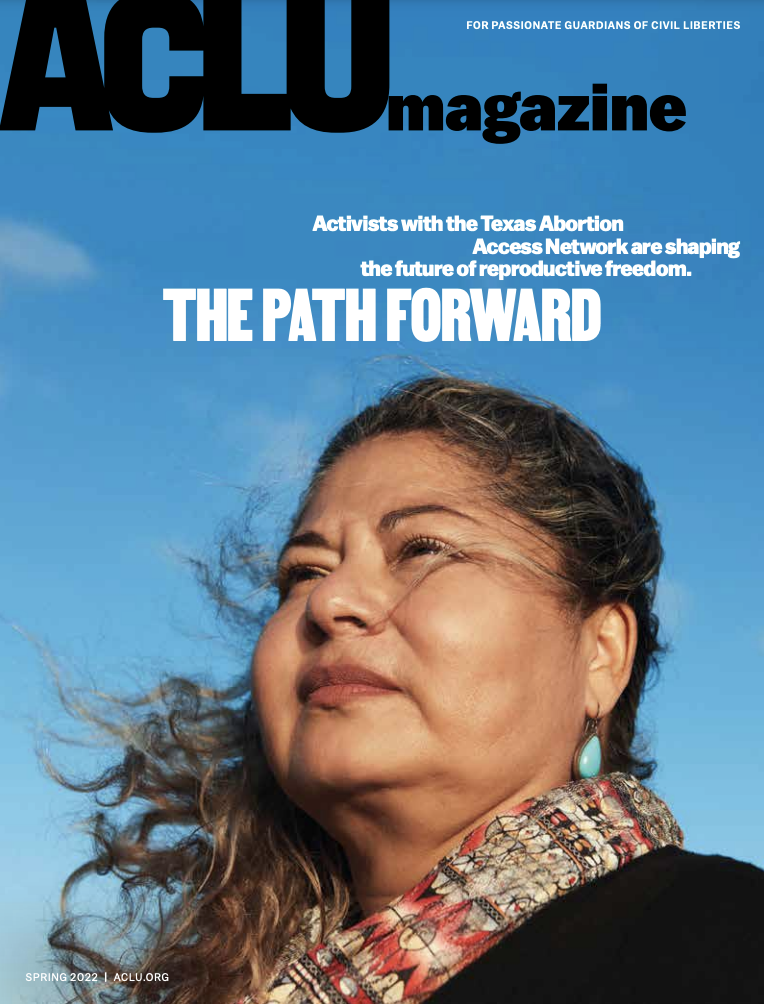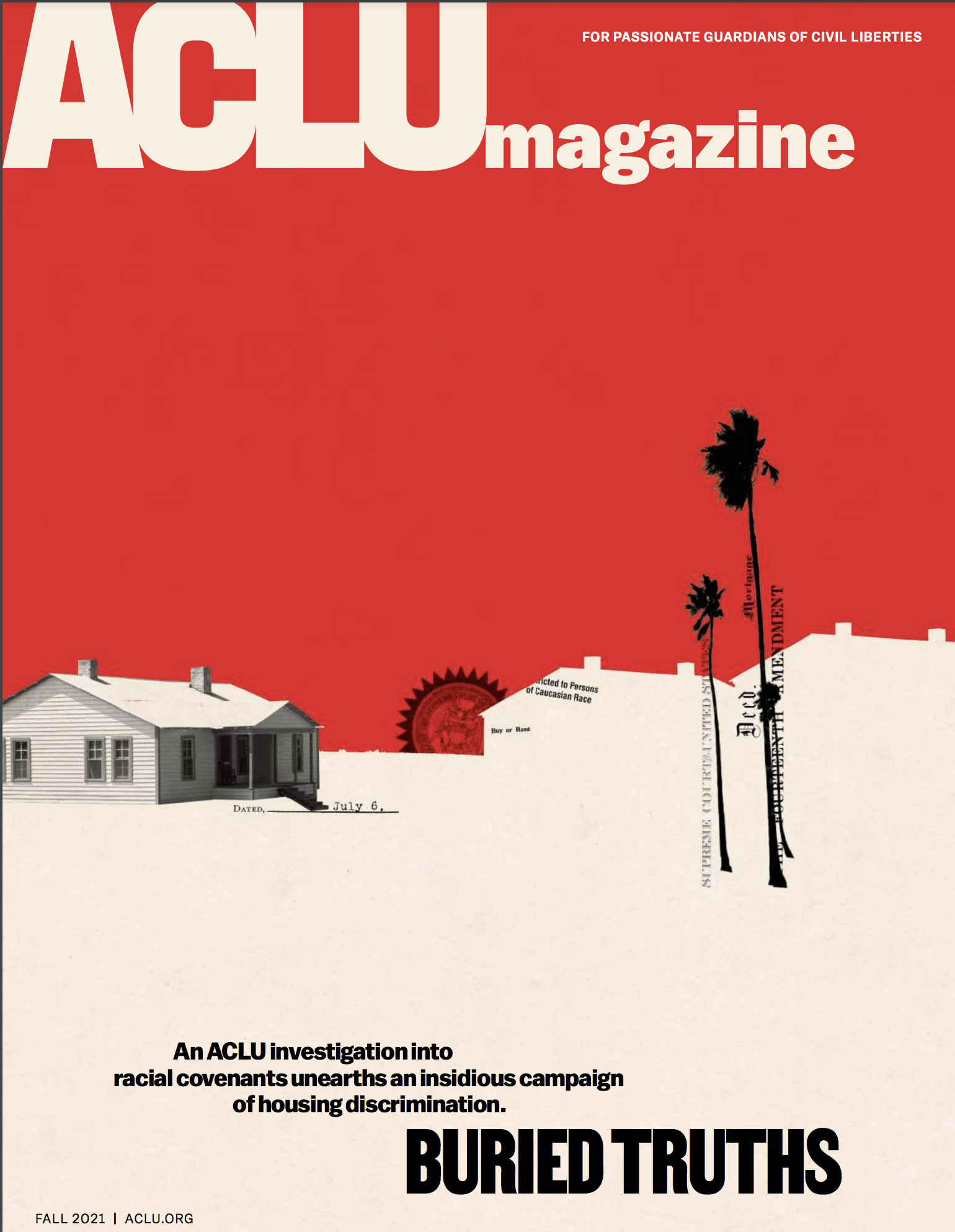Research & Publications
Access in-depth resources and analysis published by the ACLU regarding our most pressing civil liberties issues.
All Publications
Search will open in a new tab using DuckDuckGo
Report: False Hope - How Parole Systems Fail Youth Serving Extreme Sentences
This report documents the failures of parole systems across the United States and how these systems fail prisoners who were young when convicted of serious crimes and are serving decades or their lives in prison.
Executive Summary
Recommendations
Methodology
I. MASS INCARCERATION, EXTREME SENTENCES, AND HOW WE TREAT YOUNG PEOPLE IN THE U.S. CRIMINAL JUSTICE SYSTEM
A. Long Sentences (Getting Longer) in the United States
B. Longer for Some: Racial Disparities in Sentencing
C. Youth and Long Sentences in the United States
1. Why Youth Should Be Treated Differently
2. Youth in the U.S. Adult Courts and Prisons
3. Youth in the U.S. Criminal Justice System: A Human Rights Outlier
II. THE POST-MILLER WORLD: STATE REFORMS FOR YOUNG OFFENDERS AND THE WORK THAT REMAINS
A. The U.S. Supreme Court and Punishments for Youth: Roper Through Montgomery
B. State Reforms for Youth in the Criminal Justice System—and Their Limits
C. The Post-Miller World: The Persistence of Long Sentences for Youth
III. PAROLE: LEGAL BACKGROUND AND NATIONAL OVERVIEW OF A SYSTEM DESIGNED TO FAIL
A. Who Is the Parole Board?
B. Parole and/vs. Due Process
C. Parole as a Second Sentencing
D. Lack of Judicial Review/Independent Oversight
E. Parole Grant Rates
F. Parole and Young Offenders
1. Youth-Specific Guidelines and Their Impact on Parole
2. Youth as an Aggravating Factor
IV. PAROLE IN PRACTICE: HUGE DISCRETIONARY POWER, NO TRANSPARENCY, AND LIMITED RIGHTS
A. Paltry Process with Significant Consequences
1. Parole Review in the Absence of a Hearing
2. Hostile Hearings
3. No Legal Assistance
B. A Closed System: The Lack of Transparency in the Parole Process
1. Uncertainty About the Factors Considered in a Parole Decision
2. Lack of Transparency in Parole Denial
V. DENIED FOR THE SERIOUSNESS OF THE OFFENSE
A. The Severity of the Crime: An Explicit, Required, and Deciding Factor
B. Where the Offense Rules, Parole Is Foreclosed
C. Challenges for Innocent Prisoners
VI. EXTERNAL IMPEDIMENTS TO PAROLE
A. Judicial Veto in Michigan
B. Governor Veto Power in Maryland, California, and Oklahoma
VII. REHABILITATION: THE THWARTED PATH TO PAROLE
A. Access to Programming for Youth Serving Long Sentences
B. Reentry Planning and Assistance
C. Denied Rehabilitation and Now, Denied Parole
VIII. COSTS OF DELAY
A. Medical Parole: A Squandered Opportunity
B. First In, Last Out: Young Prisoners Waiting for Geriatric Release
IX. INTERNATIONAL HUMAN RIGHTS LAW PERSPECTIVE
A. Human Rights Law, Proportionality, and Extreme Sentences
B. Parole and the Meaningful Opportunity for Release
C. Rights of the Child in the Criminal Justice System
D. Children, Courts, and Punishment
E. Children in Prison
F. The Right to Rehabilitation
Acknowledgements
Appendix A: For prisoners serving a life sentence, when is the first parole review? State by state
Appendix B: If a person is denied parole (discretionary release), when will they be reviewed again? State by state
Appendix C: Sample FOIA Request
Endnotes
The 2016 Trump Memos
Donald Trump’s statements and policy proposals would blatantly violate the inalienable rights guaranteed by the Constitution. We have undertaken an analysis of his most controversial policy proposals. These include his pledges to deport over 11 million undocumented immigrants, to ban Muslims from entering the United States, to surveil American Muslims and their houses of worship, to torture again, and to revise libel laws. We have found them all wanting, to say the least. According to our analysis, Trump’s proposals taken together would violate the First, Fourth, Fifth, and Eighth Amendments to the Constitution.
Every 25 Seconds: The Human Toll of Criminalizing Drug Use in the United States
Every 25 Seconds: The Human Toll of Criminalizing Drug Use in the United States is a joint report by Human Rights Watch and the American Civil Liberties Union that documents the devastating harms caused by enforcement of drug possession laws.
More than 1.25 million people are arrested per year for drug possession, making it the single most arrested crime in the country. Black and white adults use drugs at similar rates, but a Black adult is 2.5 times more likely to be arrested for drug possession. On any given day there are at least 137,000 people behind bars as a result of drug possessions, while tens of thousands more are convicted, cycle through jails and prisons, and spend extended periods on probation and parole, often burdened with crippling debt from court-imposed fines and fees. There is a better way. This report provides detailed recommendations authorities should follow to minimize the harmful consequences of current laws and policies, until decriminalization is achieved.
Author: Tess Borden (@TessBorden)
Press Coverage: The Washington Post | The Intercept | Business Insider | Democracy Now | Reason Magazine | MintPress News | Center for American Progress | YubaNet
Articles/Blogs Written By Author: “Stuck in a US Prison – for a Small Amount of Marijuana” – Human Rights Watch | “It’s Time to Decriminalize Personal Drug Use and Possession. Basic Rights and Public Health Demand It.” – ACLU
Related Advocacy/Litigation: Record Voter Engagement Leads to Historic Marijuana Legalization | Massachusetts Voters Legalize Marijuana, and ACLU Sets Sights on Successful Implementation | ACLU Calls for Repeal of Mandatory Minimum drug Sentencing Following SJC Ruling | ACLU Obtains Court Ruling Against Smithfield Anti-Medical Marijuana Ordinance | Maricopa County Prosecutor Drops Challenge to Arizona’s Medical Marijuana Act as Violation of Federal Law, Ceding Victory to ACLU
Shutting Down the Profiteers: Why and How the Department of Homeland Security Should Stop Using Private Prisons
This new report from the American Civil Liberties Union spotlights the dangerously close ties between U.S. Immigration and Customs Enforcement (ICE) and the private prison industry, describes the human toll of over-detention and privatization, and provides a concrete plan for how ICE can and should phase out its reliance on private prisons.
Community Control Over Police Surveillance: Technology 101
The proliferation in local police departments’ use of surveillance technology, which in most places has occurred without any community input or control, presents significant threats to civil rights and civil liberties that disproportionately impact communities of color and low-income communities. The nationwide “Community Control Over Police Surveillance” effort is looking to change that through legislation mandating that local communities are given a meaningful opportunity to review and participate in all decisions about if and how surveillance technologies are acquired and used locally. Here is a list of costly and invasive surveillance technologies that might be recording you, your family, and your neighbors right now.
ACLU Magazine
Published twice a year, ACLU Magazine shares updates on the ACLU’s critical litigation and advocacy work across the country and tells the stories of the activists, attorneys, and clients at the heart of each case and campaign. To receive ACLU Magazine by mail, become a monthly donor today.
Stay Informed
Sign up to be the first to hear about how to take action.


